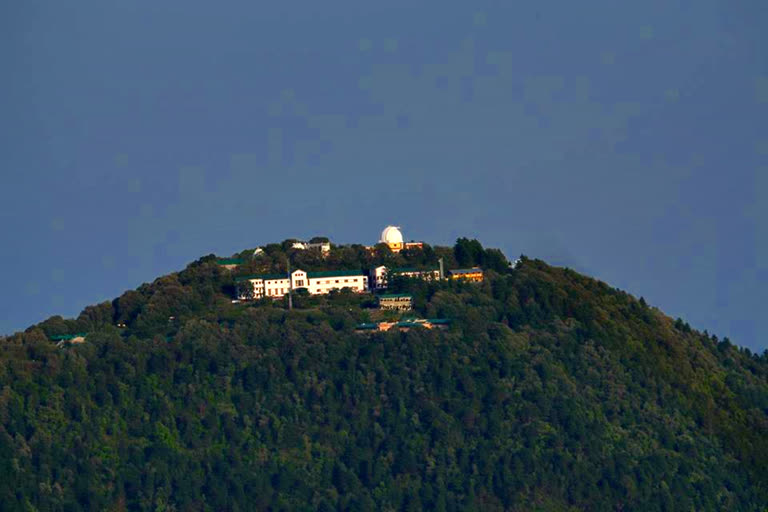Dehradun (Uttarakhand): In January 2022, India will launch its first solar mission Aditya L-1 to study the Sun. According to ISRO, the purpose of this mission is to keep an eye on the Sun permanently without any hindrance and to observe the solar aura. For this, a community service centre has been set up to collect the data received from India's first solar space mission via a web interface, so that scientists can view the data immediately and analyze it in a scientific manner. The name of this centre is Aditya L1 Support Cell (AL1SC).
This centre has been built jointly by ISRO and Aryabhatta Research Institute of Observational Sciences, Department of Science and Technology, Government of India. This is being used by guest observers for the analysis of scientific data and the preparation of science observation proposals. The AL1SC has been set up at the Haldwani campus of the Aryabhatta Research Institute of Observational Sciences (ARIES), Uttarakhand, which will work jointly with ISRO. So that maximum analysis and use of all the scientific details and data from India's first solar space mission L1 (Aditya-L1) can be done.
Read: ISRO invites scientific research proposals on AstroSat data
AL1SC will also connect with other space observatories of the world and will provide data related to the solar mission, which is obtained through the L1 (Aditya-L1) mission. With this, more and more people will get information about this mission. This will also allow every interested person to do a scientific analysis of the data. According to the Indian Space Research Organization (ISRO) chairman K Sivan, the Aditya L-1 mission will be placed in the halo orbit around the Lagrangian Point 1 (L-1), at a distance of 1.5 million kilometres from Earth, so that the Sun can be observed continuously without any obstruction or eclipse.
Aryabhatta Research Institute of Observational Sciences (ARIES) is located at Manora Peak in Nainital. It is considered the best institute to study Astronomy and was established by the Government of Uttar Pradesh in Varanasi on 20 April 1954, as the 'Uttar Pradesh State Observatory'. After the formation of Uttarakhand in the year 2000, it came to be known as the State Observatory. On 22 March 2004, it was accorded the status of an autonomous institution under the Government of India.
Read: ISRO makes breakthrough demonstration of free-space Quantum Key Distribution



